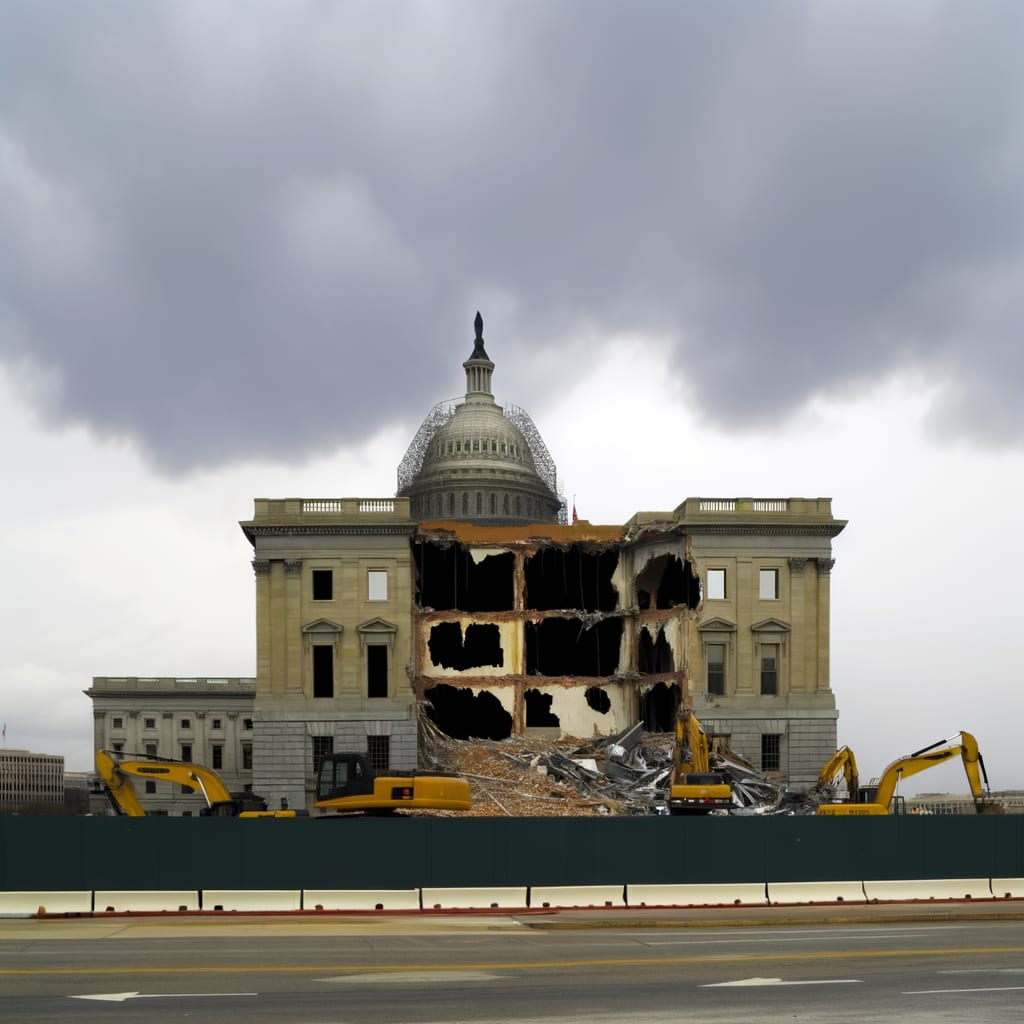Trump’s White House Ballroom Construction Stirs Controversy Amid Shutdown
President Donald Trump's ambitious project to demolish the entire East Wing of the White House and build a grand ballroom has ignited a firestorm of controversy. The $300 million undertaking, funded by private donors including major tech companies, has raised questions about the timing, cost, and source of funding during a government shutdown.
Background and Context
The East Wing, built during President Franklin D. Roosevelt's era, is being torn down to make way for a luxurious ballroom capable of accommodating up to a thousand guests. The decision has been met with intense criticism, with some accusing Trump of destroying a part of the White House's history. The demolition, which began on Monday (20), has already changed the face of the iconic building, leaving what comedian Stephen Colbert likened to a rotisserie chicken your dog got into.
Funding and Criticisms
Funding for the ballroom has raised eyebrows, with critics questioning the source of the money during the government shutdown. However, the White House has revealed that the project is largely funded by private donors, with major contributions from tech companies Apple, Amazon, Meta, Microsoft, and Google; defense contractors Booz Allen Hamilton, Lockheed Martin, and Palantir; and communication companies T-Mobile and Comcast.
Despite this, the timing and cost of the project have sparked controversy. The construction costs have risen from an initial $200 million to $300 million, causing a stir among critics who question the allocation of such funds during a shutdown.
Defense and Reactions
In defense of the project, Trump and his supporters have argued that the ballroom is not a vanity project, but rather a long-considered addition to the executive home that lacked the capacity to hold large indoor events. Donald Trump Jr. blasted the criticisms, stating, They have nothing else to talk about anymore. They've lost the plot.
However, Democrats and critics are not alone in their concerns. Even as demolition began, it was reported that the White House had not submitted plans for the new ballroom to the federal agency overseeing construction of federal buildings, adding to the controversy.
Implications and Status
The construction of the ballroom, while hailed by some as a visionary addition, has undeniably sparked a wide range of reactions from various quarters. The controversy has also been amplified by the current government shutdown, with critics questioning the timing and funding of such a large-scale project.
As of now, the demolition of the East Wing is complete, and construction of the ballroom is expected to commence soon. The final outcome of this controversy and the impact it may have on the Trump administration remains to be seen.

